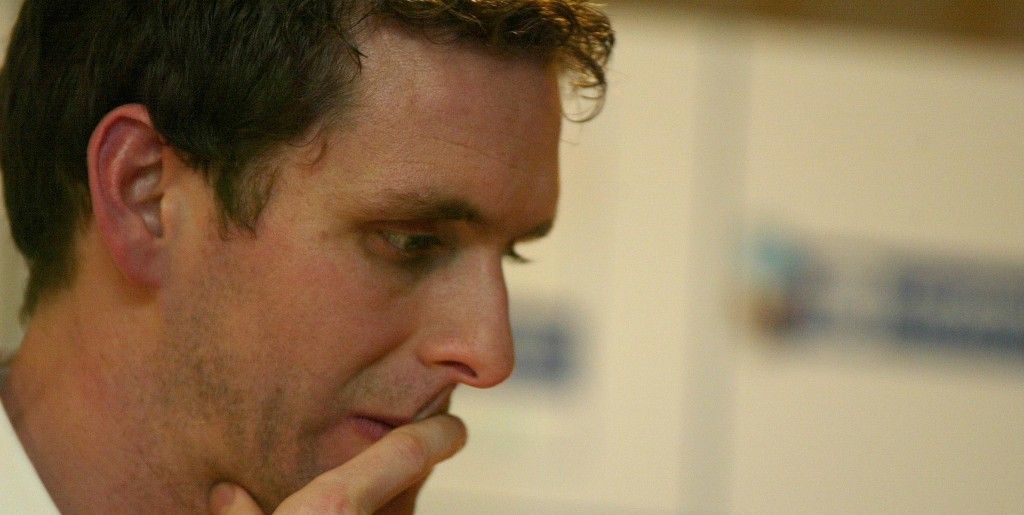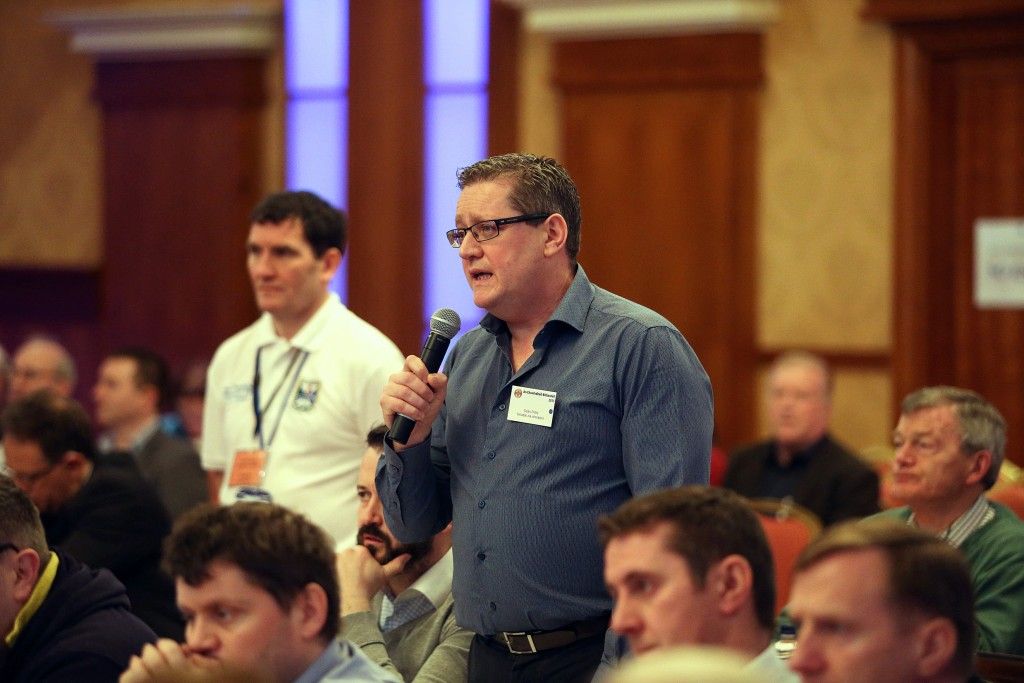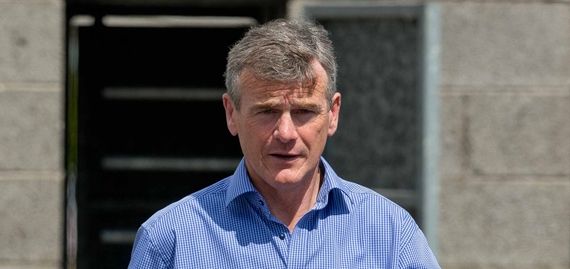

Share
20th January 2016
05:25pm GMT

 However O'Neill questioned the GPA's ability to fight for their members' wishes after signing an €8million deal with the GAA in 2010. He argues they should have sought a percentage of commercial income instead, to retain more bargaining power.
"You cannot be at the beck and call of the organisation. The GAA have silenced the GPA's authority with the deal they have done, I said it at the time. It was a very, very smart deal on their part," said O'Neill.
"What we are seeing at the moment is nothing more than the manifestation of a poor deal done a number of years ago," he added.
"The power is on one side of the table. The GAA are in a fantastic position."
Potts rejects this, saying the GAA and the GPA have an equal working relationship and the players' body have "a direct line to Croke Park on all issues".
The GPA communications chief was unhappy with how O'Neill portrayed the €8m deal, arguing instead that the deal secured funding, which was the GPA's "raison d'etre" up to that point.
While he insists "the lobbying never stops" he did not rule out a player strike on the Championship structure or any other issue if that is what the members called for.
However O'Neill questioned the GPA's ability to fight for their members' wishes after signing an €8million deal with the GAA in 2010. He argues they should have sought a percentage of commercial income instead, to retain more bargaining power.
"You cannot be at the beck and call of the organisation. The GAA have silenced the GPA's authority with the deal they have done, I said it at the time. It was a very, very smart deal on their part," said O'Neill.
"What we are seeing at the moment is nothing more than the manifestation of a poor deal done a number of years ago," he added.
"The power is on one side of the table. The GAA are in a fantastic position."
Potts rejects this, saying the GAA and the GPA have an equal working relationship and the players' body have "a direct line to Croke Park on all issues".
The GPA communications chief was unhappy with how O'Neill portrayed the €8m deal, arguing instead that the deal secured funding, which was the GPA's "raison d'etre" up to that point.
While he insists "the lobbying never stops" he did not rule out a player strike on the Championship structure or any other issue if that is what the members called for.
 "There is nothing to stop us doing anything," he said. "We can't engage in megaphone diplomacy all the time but we're not prevented from doing so if that is where the members want us to go."
O'Neill's portrayal of the organisation contrasts to his view on the early days of the body, when firebrands like himself, Farrell, outgoing president Dónal Óg Cusack and Kieran McGeeney had the Association on the back foot.
"There is no question we had the GAA on the run, there is no doubt about that. When I look back at the correspondence I got from Croke Park back in the day and then how that transpired and then when we appointed Dessie and the great work he did.
"We absolutely had them on the run, but you can only do that for so long. You must strike, you must do your deal and you must move on.
"I just think the deal was wrong."
O'Neill's views are in direct contradiction with Colm O'Rourke's comments in his newspaper column last Sunday, but no less damaging. Far from being under the thumb of the GAA, Sunday Game pundit O'Rourke believes the opposite is true.
"There is nothing to stop us doing anything," he said. "We can't engage in megaphone diplomacy all the time but we're not prevented from doing so if that is where the members want us to go."
O'Neill's portrayal of the organisation contrasts to his view on the early days of the body, when firebrands like himself, Farrell, outgoing president Dónal Óg Cusack and Kieran McGeeney had the Association on the back foot.
"There is no question we had the GAA on the run, there is no doubt about that. When I look back at the correspondence I got from Croke Park back in the day and then how that transpired and then when we appointed Dessie and the great work he did.
"We absolutely had them on the run, but you can only do that for so long. You must strike, you must do your deal and you must move on.
"I just think the deal was wrong."
O'Neill's views are in direct contradiction with Colm O'Rourke's comments in his newspaper column last Sunday, but no less damaging. Far from being under the thumb of the GAA, Sunday Game pundit O'Rourke believes the opposite is true.
 "For me, the GPA has taken over the GAA and a small tail is wagging a very big dog. There is no questioning from anyone at the top of the GAA of any activities of the GPA, it is much too cosy a relationship," wrote O'Rourke in the Sunday Independent.
O'Neill agrees with O'Rourke that the GPA have lost focus. An organisation that started out threatening strike action if players did not receive grants and insurance has moved into the area of mental health and gambling addiction.
"That's all very good work but it strikes me as slightly strange. When we set out players weren't insured and we were trying to correct some of the serious issues," said O'Neill.
"If players are now saying that this [championship structures] is the issue then they must strike out and decide on what they want and how they are going to get it."
However O'Neill believes the GPA are no longer in a position to hold the Association to ransom, going so far as to suggest the €8m was a pay-off to guarantee no more collective actions from the players' body.
"They have been bought over and the devil will be in the detail of the deal. They've probably alluded to, or indirectly or directly signed away the right to strike. Irrespective, it shouldn't matter what the hell they have signed. If something like this means enough then it is time to stand up and make your call," said O'Neill.
"For me, the GPA has taken over the GAA and a small tail is wagging a very big dog. There is no questioning from anyone at the top of the GAA of any activities of the GPA, it is much too cosy a relationship," wrote O'Rourke in the Sunday Independent.
O'Neill agrees with O'Rourke that the GPA have lost focus. An organisation that started out threatening strike action if players did not receive grants and insurance has moved into the area of mental health and gambling addiction.
"That's all very good work but it strikes me as slightly strange. When we set out players weren't insured and we were trying to correct some of the serious issues," said O'Neill.
"If players are now saying that this [championship structures] is the issue then they must strike out and decide on what they want and how they are going to get it."
However O'Neill believes the GPA are no longer in a position to hold the Association to ransom, going so far as to suggest the €8m was a pay-off to guarantee no more collective actions from the players' body.
"They have been bought over and the devil will be in the detail of the deal. They've probably alluded to, or indirectly or directly signed away the right to strike. Irrespective, it shouldn't matter what the hell they have signed. If something like this means enough then it is time to stand up and make your call," said O'Neill.
 "You must set yourself up to still retain the ability to use your greatest weapon. You can call a spade a spade, you can call it whatever you like, but back in the day we talked about requesting that television cameras be turned off - the match would go ahead just turn the cameras off.
"That is the still the most powerful call the GPA could make but they are no longer in the position to make it."
Admitting he stayed too long himself, O'Neill said, given the chance, he would overhaul the entire organisation - all but calling on his former colleague Farrell to stand down as CEO.
"The first thing I would do is probably stand everyone down and introduce a protocol that introduces new faces every five years. I think fresh blood and passion are hugely important to the organisation," he said.
"You must set yourself up to still retain the ability to use your greatest weapon. You can call a spade a spade, you can call it whatever you like, but back in the day we talked about requesting that television cameras be turned off - the match would go ahead just turn the cameras off.
"That is the still the most powerful call the GPA could make but they are no longer in the position to make it."
Admitting he stayed too long himself, O'Neill said, given the chance, he would overhaul the entire organisation - all but calling on his former colleague Farrell to stand down as CEO.
"The first thing I would do is probably stand everyone down and introduce a protocol that introduces new faces every five years. I think fresh blood and passion are hugely important to the organisation," he said.
"I think that the creativity is gone from it at this point."
In response Potts pointed to the GPA appointing a new president, chairman and secretary, adding the membership are "satisfied with how we're governed and structured".
Explore more on these topics: